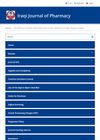Prognostic Factors That Affect the Response to Topical Treatment in Patchy Alopecia Areata
November 2012
in “
Journal of The European Academy of Dermatology and Venereology
”

TLDR Certain factors like allergies, nail problems, and hair loss patterns can predict how well someone with patchy hair loss will respond to skin cream treatments.
The study from 2012 investigated the response to topical treatments in 60 patients with patchy alopecia areata (AA) compared to 30 healthy controls. The patients were treated with either 0.05% clobetasol propionate cream or placebo (petrolatum), applied twice daily for 12 weeks. The study revealed that patients with atopy and nail involvement had a higher risk of relapse after treatment, and those with autoantibodies had more extensive AA. Thyroid function abnormalities were found in 16.6% of patients and were associated with a longer disease duration. While topical clobetasol propionate had a modest advantage over placebo in hair regrowth, the presence of atopy, nail dystrophy, and the ophiasic pattern of hair loss were significant prognostic factors for therapy response in AA. Autoantibodies were linked to the extent of disease involvement but did not affect recovery rates. Side effects from treatment correlated with higher recovery percentages and lower relapse rates.













